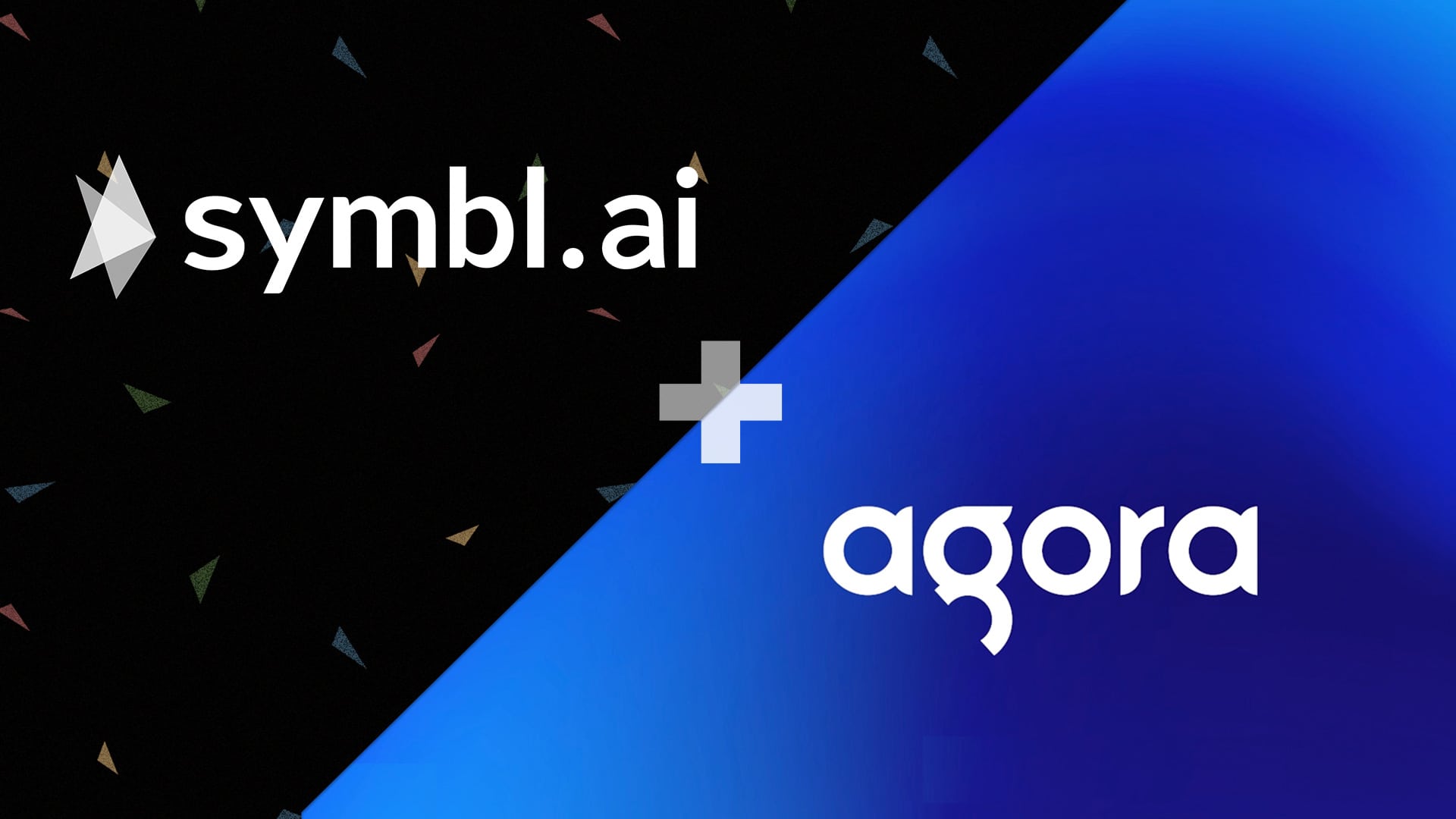Symbl's APIs empower developers to enable:
- Real-time analysis of free-flowing discussions to automatically surface highly relevant summary discussion topics, contextual insights, suggestive action items, follow-ups, decisions, and questions.
- Voice APIs that makes it easy to add AI-powered conversational intelligence to either telephony or WebSocket interfaces.
- Conversation APIs that provides a REST interface for managing and processing your conversation data.
- Summary UI with a fully customizable and editable reference experience that indexes a searchable transcript and shows generated actionable insights, topics, timecodes, and speaker information.
This app is provided for demonstration purposes only. Please feel free to report any issue in the Issues section.
Enable Symbl for Agora RTE App
- Introduction
- Pre-requisites
- Features
- Browser Support
- Setup and Deploy
- Dependencies
- Conclusion
- Community
This is a multi-party video-conferencing application that demonstrates Symbl's Real-time APIs.
- Live Closed Captioning
- Real-time Transcription
- Real-time Insights: Questions, Action Items and Follow-ups
- Real-time Topics with sentiments
- Video conferencing with real-time video and audio
- Enable/Disable camera
- Mute/unmute mic
- Screen sharing
Support for this application is available only for Chrome and Firefox.
-
Get your Symbl credentials (
App IdandApp Secret) from the Symbl Platform Console. -
Get your Agora credentials (
App IdandApp Certificate) from the Agora Platform Console. See here for more information on how to do that.
- Download and install PostgreSQL. You can follow these steps to install PostgreSQL.
- Create a database with the name of your choice. See here for more information.
- Note the username, password, and database name that you have created.
- Clone the repo.
- Navigate to the
Symbl-Powered-Agora-Backend-masterdirectory and open theconfig.jsonfile. - Add your Symbl
App IdandApp Secretvalues in the respective fields below:
"SYMBL_APPID": ""
"SYMBL_SECRET": ""
- Add your Agora
App IdandApp Certificatevalues in the respective fields below:
"APP_ID": "",
"APP_CERTIFICATE": "",
- Open the file models/db.go and replace the following line (19) within the CreateDB function:
db, err := gorm.Open("postgres", os.Getenv("PG_DB_DETAILS"))
with your PostgreSQL database user, password, host, and database name as described below:
db, err := gorm.Open("postgres","postgres://<user>:<password>@<host>/<db_name>?sslmode=disable")
This sample application uses GORM for connecting to the PostgreSQL database and you can learn more about it here.
- Navigate to the
Symbl-Powered-Agora-Backend-masterdirectory and run the following command:
go run server.go
Your backend server should be running on port 8080 and you should see a log message similar to the following:
{"level":"debug","time":"9999-99-99T99:99:99-07:00","message":"Backend server running on port: 8080"}
You can also navigate to http://localhost:8080/test to make sure the server is up and running without any issues. You should see a sample web page as shown below.
- Open the file
config.jsonunder the folderSymbl-Powered-Agora-Masterand provide your Agora project name, display name, and App Id in the respective fields below:
"projectName": ""
"displayName": ""
"AppID":""
- Add the Backend URL in the respective field below:
"backEndURL": "http://localhost:8080"
- Navigate to the
Symbl-Powered-Agora-masterdirectory and run the following command:
npm install
This command will install all the necessary frontend dependencies.
- Run the following command to start the frontend application:
npm run web
Your frontend server should be running on port 3000 (http://localhost:3000). You should see the web application ready to be used as shown below.
With your backend and frontend servers up and running, navigate to http://localhost:3000, click on the Create a meeting button, enter a room name and click the Create a meeting button again.
When the meeting URL is created, click on the Enter Meeting (as host) button to enter the meeting.
Select your camera, microphone and type your display name before clicking on the Join Room button.
This application allows you to join an Agora video conference meeting with Symbl Transcripts and Insights, Topics and Sentiments enabled and displayed it on the screen in real-time.
If you have any questions, feel free to reach out to us at [email protected] or through our Community Slack or our forum.
This guide is actively developed, and we love to hear from you! Please feel free to create an issue or open a pull request with your questions, comments, suggestions, and feedback. If you liked our integration guide, please star our repo!
This library is released under the Apache License



